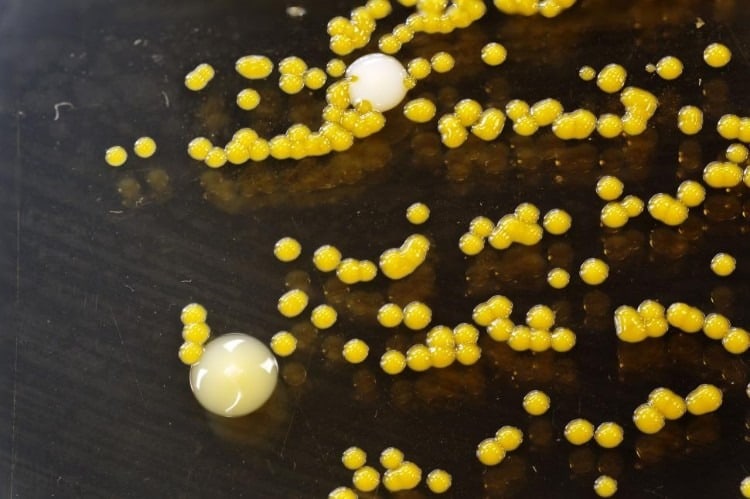



Revolutionized is reader-supported. When you buy through links on our site, we may earn an affiliate commision. Learn more here.
Acetaminophen is a common over-the-counter pain reliever often sold under brand names that you’re probably familiar with, like Tylenol and Excedrin. People use it every day to relieve pain, ease inflammation and reduce fevers. Its label features warnings about what might happen if you use it improperly. Recent news out of California has also labeled the OTC painkiller as a potential cancer risk. Should you be tossing out the Tylenol in your cabinet? Is acetaminophen a cancer risk? Let’s take a look at the science behind these claims and whether or not you should worry.
To understand this declaration, first you have to understand the legislation behind it. Proposition 65 is California-based legislation requiring businesses and manufacturers to provide warnings on products containing chemicals that can cause cancer or reproductive harm. It first became law in 1986 and get updated once a year. The list currently contains nearly 900 natural and synthetic chemicals.
Being added to the Proposition 65 list doesn’t necessarily mean lawmaker have banned the product. However, its packaging must include a warning. The specifics also prohibit businesses in the state from dumping any of these chemicals into local drinking water supplies.
In spite of its popularity as an over-the-counter pain reliever, California wants to add acetaminophen in it’s many forms to the list of chemicals classified as dangerous under Proposition 65. There have been more than 100 different peer-reviewed studies that look at the possible risk factors associated with this OTC pain killer, but the study results are not conclusive.
The problem doesn’t generally lie with acetaminophen, however. This OTC medication is a metabolite of another drug, phenacetin, and that medication has shown higher risks of bladder and kidney cancer. Some of the metabolites of acetaminophen can be mutagenic, which could, in turn, lead to cancerous growths. However, there haven’t been enough peer-reviewed studies to determine the dangers one way or another.
Other over-the-counter medications are currently on the list. Aspirin is part of the Proposition 65 list because of the danger it presents to pregnant women. Coffee was nearly on the list, thanks to the fact that it contains acrylamide which by itself can cause cancer. However, there is no proof that coffee itself causes the disease.
Even if the Tylenol doesn’t cause cancer, there are plenty of things that do. Plus, many cases of cancer don’t have any definitive cause. While science hasn’t discovered a cure for this dreadful disease, new treatments are emerging all the time that could help turn the tide and make it easier to help push cancer into remission. One of these new techniques utilizes CRISPR gene-editing tools. CRISPR stands for Clustered Regularly Interspaced Short Palindromic Repeats and it works by slicing and modifying DNA.
A new application for this DNA editing process could help fight cancer. The PD-1 gene is one that is often exploited by cancer cells. When that happens, cancer destroys your immune system. Researchers may be able to use CRISPR to bolster that PD-1 gene, which naturally strengthens your immune system and makes it less susceptible to cancer.
This is just one of the potential new cancer treatments that are emerging as medical technology continues to advance. It isn’t a cure for cancer but it is a step in the right direction to help treat a dangerous disease. Do you need to worry that the painkillers you take for everyday head and body aches are going to increase your risk of developing cancer?
While it might seem like the prudent course of action is to toss out all of your Tylenol and other over-the-counter medications containing acetaminophen, it’s really too early to worry about something that’s been an OTC staple for decades. There are over 100 studies that look at the possible carcinogen properties of acetaminophen. Many of them find no connection between the drug and cancer, or can’t separate the effects of acetaminophen from other variables that can also cause cancer.
The government-appointed scientists of the state’s Carcinogen Identification Committee will be working to determine whether acetaminophen will be added to the list of substances that are part of Proposition 65. Public comments closed on January 27th and if they decided to add it to the list, any products that contain acetaminophen will need to have a warning label stating that the substance can cause cancer in the state of California.
Featured Image Credit: Michelle Tribe from Ottawa, Canada CC BY 2.0
Revolutionized is reader-supported. When you buy through links on our site, we may earn an affiliate commision. Learn more here.


This site uses Akismet to reduce spam. Learn how your comment data is processed.